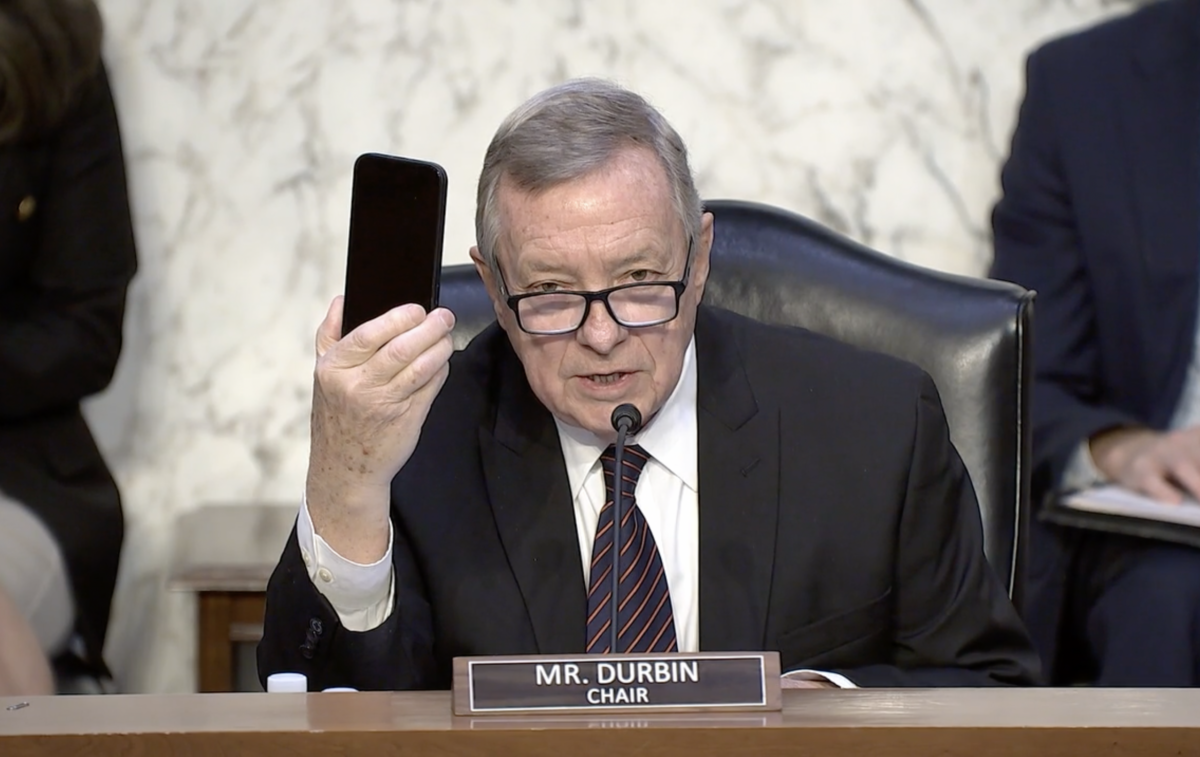Bipartisan Alarm Over Social Media’s Harms to Children Prompts Slew of Proposed Legislation
Bills ranged from addressing intermediary liability to limiting personal data collection.

WASHINGTON, February 20, 2023 — Senators from both sides of the aisle came together on Tuesday to condemn social media platforms’ failure to protect underage users, demonstrating bipartisan collaboration and underscoring a trend of increased government scrutiny toward tech companies.
The Judiciary Committee hearing included discussion of several bills aimed at protecting children online, such as the Kids Online Safety Act, a measure that would create a “duty of care” requirement for platforms to shield children from harmful content. KOSA gained significant bipartisan traction during the previous session of Congress but ultimately failed to pass.
The bill’s co-sponsors — Sens. Richard Blumenthal, D-Conn., and Marsha Blackburn, R-Tenn. — emphasized the urgency of congressional action, pointing to research published Feb. 13 by the Centers for Disease Control and Prevention that showed a sharp increase in youth mental health challenges, particularly among girls and LGBTQ teens.
“It’s a public health emergency egregiously and knowingly exacerbated by Big Tech, aggravated by toxic content on eating disorders, bullying, even suicide — driven by Big Tech’s black box algorithms leading children down dark rabbit holes,” Blumenthal said.
In addition to social media’s impact on mental health, several senators focused on the issue of digital child sexual exploitation. Judiciary Committee Chair Dick Durbin, D-Ill, announced that he would be circulating the draft of a bill aimed at stopping the spread of online child sex abuse material by strengthening victim protection measures and platform reporting requirements. Sen. Lindsey Graham, R-S.C., said he was working with Sen. Elizabeth Warren, D-Mass., on a bill that would create a regulatory commission with the power to shut down digital platforms that failed to implement “best business practices to protect children from sexual exploitation online.”
Graham, the top Republican on the committee, added that he and Warren “have pretty divergent opinions except here — we have to do something, and the sooner the better.”
Bipartisan collaboration was a theme throughout the discussion. “I don’t know if any or all of you realize what you witnessed today, but this Judiciary Committee crosses the political spectrum — not just from Democrats to Republicans, but from real progressives to real conservatives — and what you heard was the unanimity of purpose,” Durbin said toward the end of the hearing.
Broad agreement for repealing Section 230, but not on its replacement
Some of the proposed social media bills discussed Tuesday would directly address the question of online platform immunity for third-party content. Several senators advocated for the EARN IT Act, which would assign platforms more responsibility for finding and removing child sexual abuse material — taking “a meaningful step toward reforming this unconscionably excessive Section 230 shield to Big Tech accountability,” Blumenthal argued.
The senators and witnesses who spoke at Tuesday’s hearing were largely united against Section 230. Witness Kristen Bride — whose son died by suicide after becoming the target of anonymous cyberbullying — said that her lawsuit against the anonymous messaging apps was dismissed based on Section 230 immunity.
“I think it is just absolutely vital that we change the law to allow suits like yours to go forward,” Sen. Josh Hawley, R-Mo., told Bride. “And if that means we have to repeal all of Section 230, I’m fine with it.”
However, Sen. Sheldon Whitehouse, D-R.I., noted that the primary barrier to Section 230 reform is disagreement over what should take its place. “I would be prepared to make a bet that if we took a vote on a plain Section 230 repeal, it would clear this committee with virtually every vote,” he said.
The Supreme Court is scheduled to hear a Section 230 case — Gonzalez v. Google — on Tuesday.
Other bills aim to protect kids online through age limits, privacy measures
Beyond the bills discussed at the hearing, several senators have recently proposed legislation aimed at protecting children’s online safety from several different angles.
On Tuesday, Hawley introduced a bill that would enforce a minimum age requirement of 16 for all users of social media platforms, as well as a bill that would commission a report on social media’s effects on underage users.
The former proposal, known as the MATURE Act, would require that users upload an image of government-issued identification in order to make an account on a social media platform, which has raised concerns among digital privacy advocates about the extent of personal data collection required.
Personal data collection was the subject of a different bill introduced the same week by Sen. Mazie Hirono, D- Hawaii, alongside Durbin and Blumenthal. The proposed Clean Slate for Kids Online Act would update the Children’s Online Privacy Protection Act of 1998 by giving individuals the right to demand that internet companies delete all personal information collected about them before the age of 13.
Discussion on the matter comes against the backdrop of a number of developments over the past year and a half, including state attorneys general investigating the impact of TikTok on kids and whistleblower testimony that alleged Facebook knew about the negative mental health impact its photo sharing app Instagram had on kids but didn’t take action on it.








